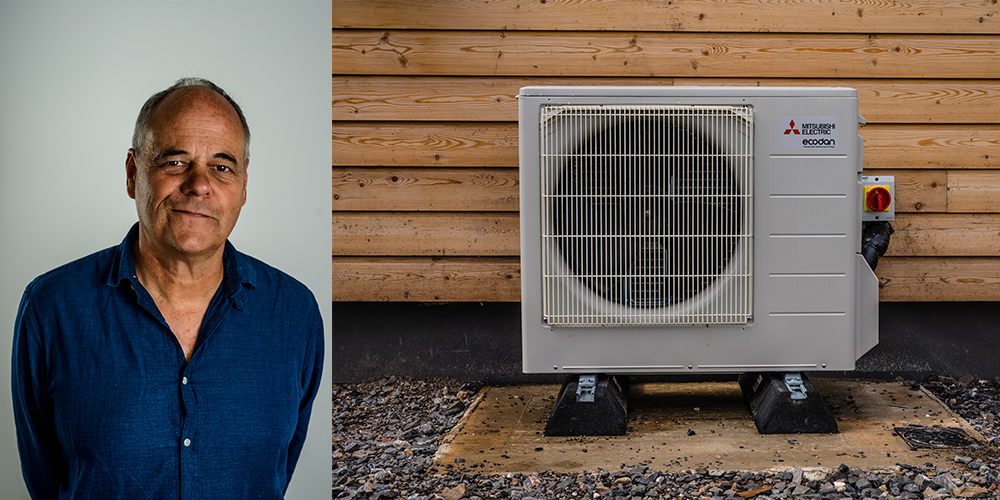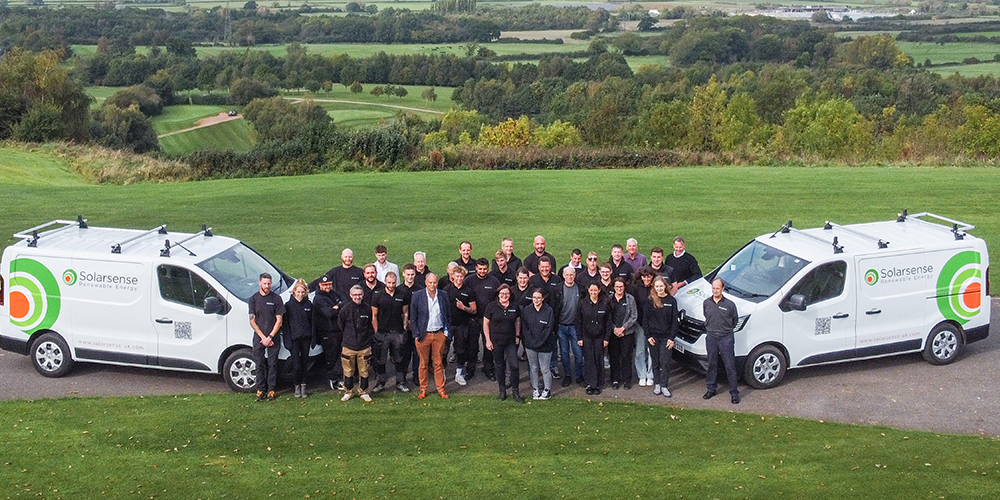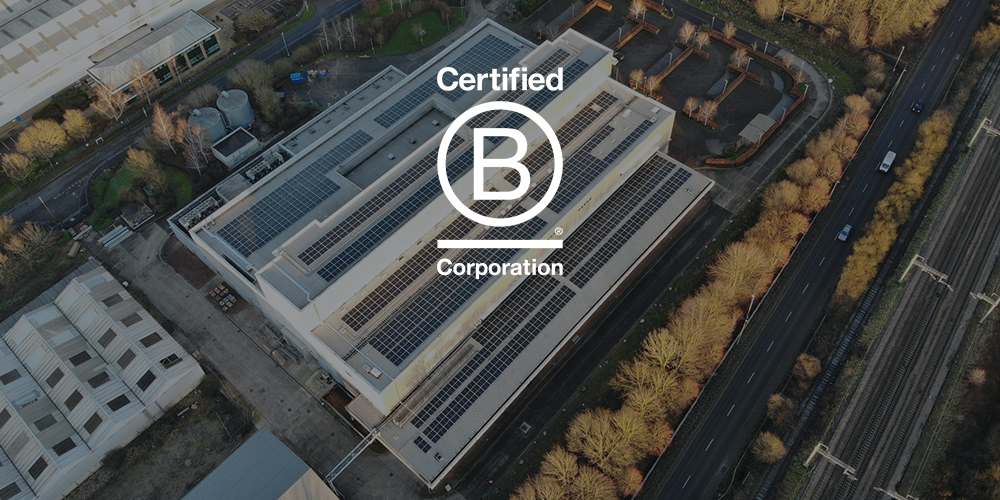
Technology Q&A with our clean energy experts
Stephen Barrett – Managing Director, Solarsense
With the Government extending the RHI scheme there is a tremendous interest in renewable heating and so we would like to explain more a little more about the technology in general and the heat pumps that we install.
What are heat pumps?
Heat pumps offer an alternative, sustainable means to heating your home – they take heat from the air (ASHP) or from the ground (GSHP) and allow you to use this energy to heat your home or building.
What are the differences between air source and ground source?
The choice between air or ground source pumps will often be determined by the available space outside your property. Ground source heat pumps are highly efficient at 4-1, meaning that for every 1kW of electricity they can produce 4kW of heat. However, GSHPs require pipework to be installed beneath the ground adjoining the property, which as a rule of thumb might be two to three times as large as the property.
Air source heat pumps are a little less efficient but still capable of converting 1kW of electricity into 3kW of heat (even when the outside temperature is as low as -15°C). ASHPs are a much more popular option as they require much less space whilst being easier to install and maintain.
What type of buildings are suitable for installing heat pumps?
New-build properties are particularly suited to heat pumps due to modern construction methods, such as underfloor heating and high insulation. However, I have installed a heat pump at my home which was built in the 1970s and been really impressed with the results. The key is to ensure your house is made as efficient as possible before installing. 300mm cavity wall and loft insulation coupled with double glazing is likely to do the trick. It is also advisable to have your radiators checked to ensure they will sufficiently heat from lower temperatures and make sure the heat pump is sized accordingly.
How much can I expect to save when switching to a heat pump?
There are two main reasons for installing a heat pump, financial and environmental. For anyone using oil or electric to heat their home, it is a clear cut case to switch – the running costs will be a fraction of what you currently pay and you will receive quarterly cash payments from the Govt. helping to pay off the installation costs.
For those that rely on gas to heat their property, the environmental benefits are more compelling than financials, as you are unlikely to save a huge amount in terms of the running costs. However, that said you will still receive roughly £1000 per year for the next 7-years from the RHI and move away from gas before it begins to be phased out. The exact amount you will save will be affected by a number of factors including building construction, the heating fuel being replaced and the type of heat distribution system in use (radiators, warm air or underfloor for example).
Our teams will always carry out a full survey of your property before making recommendations, this ensures our assessment of the savings you can expect to see are based on your actual property. If you would like a free, no obligation survey please fill out the form on our contact us page.
Can a heat pump be combined with solar panels?
Yes! Integrating a heat pump with your solar panels is a great way to mitigate the running costs associated with heating your home. More and more homeowners are now combining different technologies in line with the way they use their energy to increase the benefits available.
Which heat pumps would you recommend?
Almost all modern heat pumps are very quiet and require little maintenance, although if I was pushed I would recommend the Mitsubishi EcoDan range. The products are manufactured in the UK and have an excellent reputation for both their efficiency and reliability.
Is there any more information available to help me make a decision?
Absolutely. You can find more information on our website under residential heat pumps. Alternatively if you have been considering a solar panels or battery storage now is a great time to get a quotation with no obligation to buy.
Simply click the green button below and fill out the form on our contact us page and one of our energy experts will get in touch to discuss your options.
FURTHER NEWS
You might like…



